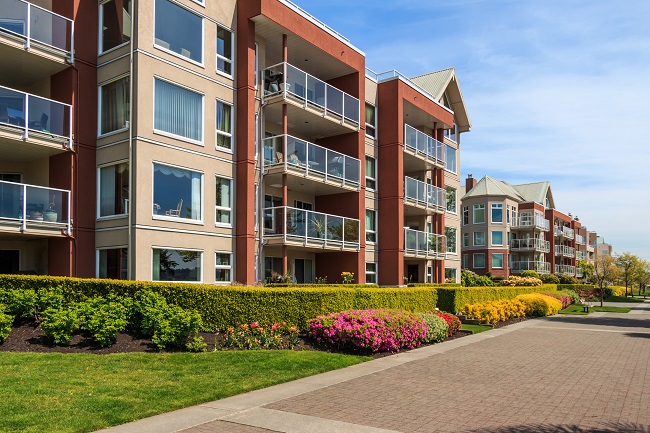Commercial Landscaping: 6 Tips That Will Help Prevent Heat Stress on Your Lawn
In the hot summer months, intense heat and harsh arid conditions can combine to squeeze the life out of even the healthiest plants and lawns. Subsequently, without any other reprieve, your turf may require meticulous care and irrigation to keep it hydrated.

Notwithstanding, you may have to learn how to interpret the tell-tale signs of heat stress or drought. And for that matter, either of the following symptoms on your lawn plants should be alarming.
- Plants start wilting
- Depict stunted growth
- Leaf discoloration
- Footmarks that persist for a significant amount of time after mowing
- Brown patches on the leaves of plants—an indicator of insect infestation as a result of drought conditions.
Have you noticed any of the above signs on your lawn? If yes, you should act fast. One thing could be certain; it appears your turf is suffering, and you need to contact an expert irrigation contractor.
Regardless, if you want to take precautionary steps, the list below will provide commercial landscaping corrective guidelines that can help you absolve your turf from heat stress.
- Frequently maintain your lawn equipment. And while mowing, avoid cutting grass too close to the surface (3-4 inches will do for the summer months). Point to note: blunt mowing blades will do more damage than good to the lawn. As such, it’s critical to equip the mower with a sharp blade. Furthermore, unevenly trimmed or damaged leaf blades will not have the capacity to retain water, and thus will be vulnerable to disease. What’s more, proper mowing techniques promote deeper plant roots resulting in healthier turfs.
- A practice you should try and steer clear of is overwatering—more so because persistent dampness will result in less oxygen in the soil, while also encouraging diseases.
- At the very extreme, cancel mowing activities for turfs that exhibit severe signs of drought stress. Undoubtedly, proceeding with mowing operations in such a situation will hinder the ability of the lawn to recover once the conditions improve. Also, you should wait for a substantial amount of rainfall before resuming mowing. However, you have to bide your time until the grass is dry to prevent clumping.
- Equally, you should avoid applying fertilizers during heat stress. Such an action that aims at stimulating growth may be counterproductive. Hence, delay the procedure until the weather elements are optimal for the turf to rebound.
- In an ideal situation, maintain the foot traffic at a bare minimum to prevent further compaction of the soil.
- As a last option, you can allow your turf to be dormant for that period, and yet, routinely water the lawn weekly.
Ultimately, erratic irrigation during adverse heat conditions will significantly hinder recovery once the climatic conditions improve. Hence, ideal watering is crucial to any concerted corrective or preventive measures you initiate. Contact our experts for more information regarding commercial landscaping care and tips.
